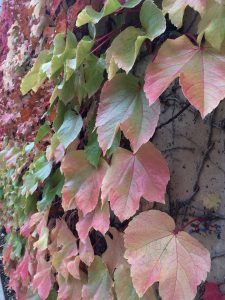I found that the book of J. Edward Chamberlin was quite fascinating will the imagery and symbolic stories. In the last chapter I found that the story of the bears and the valley, the painters, and the borders were really interesting and thought provoking.
The story of the bears, I do actually wondering if this has some connotation of the Okanagan Valley, because I believe that Kelowna in the First Nations Language means Grizzly Bear. http://www.tourismkelowna.com/about/history/ Which of course I think is really interesting and thought provoking but that this because I live here. I think that it is interesting that these bears would take away the fertile lands from the people that lived there because they became lazy and did not keep the same traditions of the ancestors. It is interesting that many people were killed in this process of the landslide and the people got their land back but it was never the same as it was before. It is like there was a form of punishment to these people and the rest of their families that were to come on that land.
The painters I thought was something of a mind twist, truths that are not really truths. With painting the ships the one painter knew exactly what color the ship had to be, while the other one did not so he chooses a completely different color that he was not supposed to. I think this is interesting because most people need everything organized in a specific way and when things do not go that specific way they get all flustered and confused. Even though it is not going to cause any actual kind of harm to the person if plans do not turn out exactly the way they are planned. It is quite unfortunate that people are so guarded like this. I should not say it is unfortunate, because I am one of those people. If something goes wrong, I cannot see past a mistake or a mess, I need to fix it, I cannot think about carrying out a task a different way.
I also think that when the author talks about borders it is really important because nowadays there is a huge distinction between mine and yours. People do not share well. These borders that people make between possessions will only doom us in the end. It is not like you can take it with you when you die. People are trapped in these material goods ruts and cannot get out. They have to have the most and be the best. I think that this comes around to the stories of the bears. People have become lazy and just want want want. They no longer care what they need, or how they get it. Before it was all about what people needed and how they could use the world around them in a peaceful way to get it. It was not about wants it was basic primary needs like food and shelter.
Off topic, I wonder if the Legend of Ogopogo might have a cool story like the bears. http://www.tourismkelowna.com/about/ogopogo/
Works Cited
Chamberlin, Edward. If This is Your Land, Where are Your Stories? Finding Common Ground. AA. Knopf. Toronto. 2004. Print.
Hi Laryssa,
Thanks for your insights from Kelowna. I too find the grizzly bear story interesting – it is one of fall and consequence, and hopefully redemption. Not unlike the flood stories eh? I concur with you on the importance to dismiss “who is right or wrong”. That binary is not helpful to understanding each other, and necessitates one group being the Other. It reminds me of the argumentative people I know (and we all know some of those), and how they overlook the point of being. That point in my opinion (and I could be wrong ;)) is to celebrate the beautiful things in the world, and try to be nice to each other. Obsession with material things is an interesting point. It can blind people on what they need vs. want to be happy.
That takes us to the next point. After reading J. Edward Chamberlin’s book, I got a sense of relief. The narratives in the text presented to me different ways to look at the world, and none of them are wrong. They just are. In totality, what did you get out of the text?
Cheers,
John
P.S. Have you, or somehow you know, seen Ogopogo?
Hello John,
Hahaha No I have not seen the Ogopogo, nor do I know of anyone who has seen him/her (you never know, have to be politically correct). I do find some sense of
relief in Chamberlin’s book. I thought the text was insightful and really made me look at narratives from my own culture and try to think of other ways that they could be interpreted.
Thanks
Laryssa